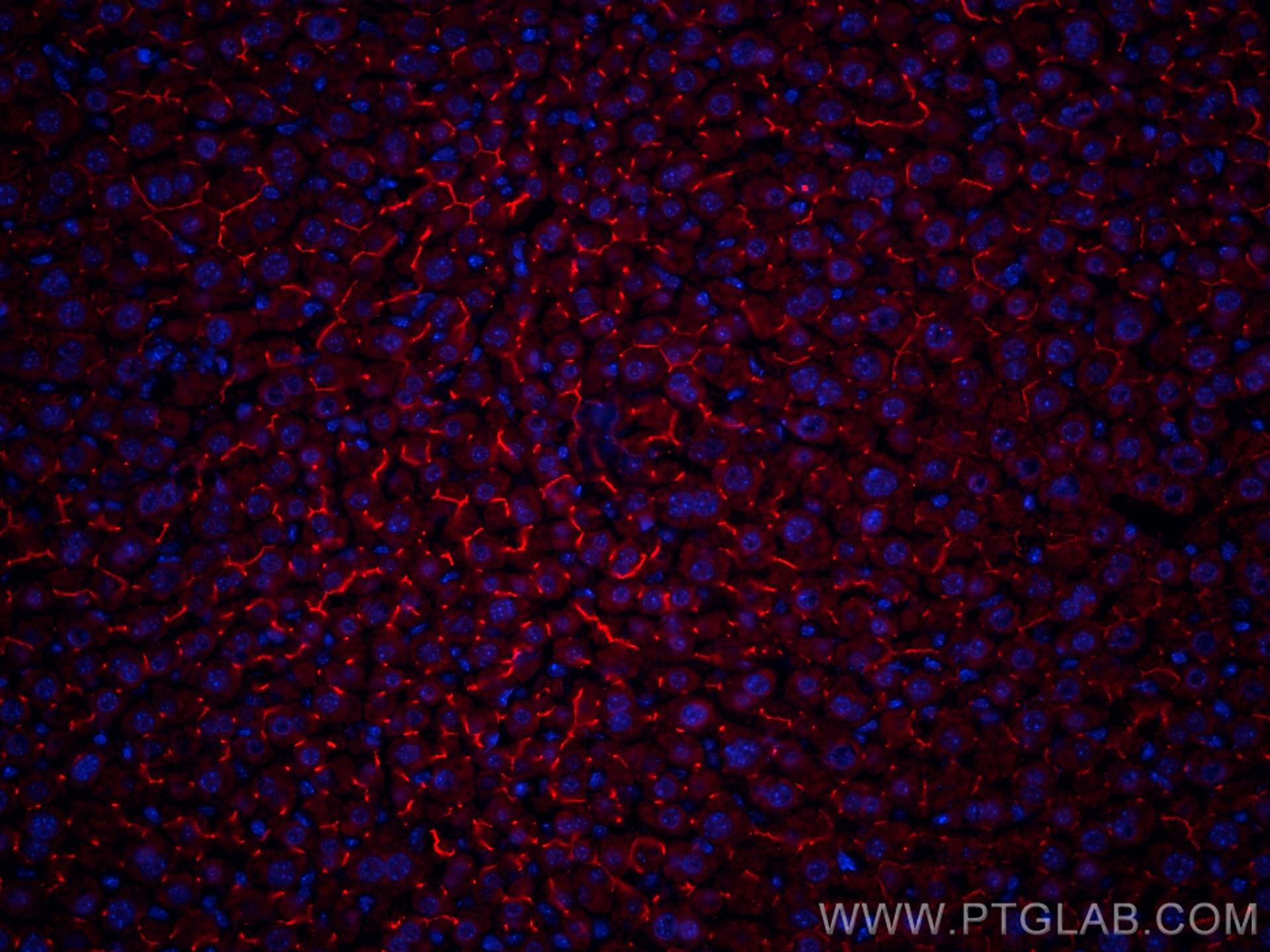Tested Applications
| Positive IF-P detected in | mouse liver tissue |
Recommended dilution
| Application | Dilution |
|---|---|
| Immunofluorescence (IF)-P | IF-P : 1:500-1:2000 |
| It is recommended that this reagent should be titrated in each testing system to obtain optimal results. | |
| Sample-dependent, Check data in validation data gallery. | |
Product Information
CL594-67512 targets BSEP in IF-P applications and shows reactivity with Human, mouse samples.
| Tested Reactivity | Human, mouse |
| Host / Isotype | Mouse / IgG1 |
| Class | Monoclonal |
| Type | Antibody |
| Immunogen | BSEP fusion protein Ag29135 Predict reactive species |
| Full Name | ATP-binding cassette, sub-family B (MDR/TAP), member 11 |
| Calculated Molecular Weight | 146 kDa |
| Observed Molecular Weight | 150-160 kDa |
| GenBank Accession Number | NM_003742 |
| Gene Symbol | BSEP |
| Gene ID (NCBI) | 8647 |
| RRID | AB_2920147 |
| Conjugate | CoraLite®594 Fluorescent Dye |
| Excitation/Emission Maxima Wavelengths | 588 nm / 604 nm |
| Form | Liquid |
| Purification Method | Protein G purification |
| UNIPROT ID | O95342 |
| Storage Buffer | PBS with 50% glycerol, 0.05% Proclin300, 0.5% BSA, pH 7.3. |
| Storage Conditions | Store at -20°C. Avoid exposure to light. Stable for one year after shipment. Aliquoting is unnecessary for -20oC storage. |
Background Information
ABCB11, also named as BSEP, belongs to the ABC transporter superfamily. ABCB11 involved in the ATP-dependent secretion of bile salts into the canaliculus of hepatocytes. Mutation of ABCB11 will cause the progressive familial intrahepatic cholestasis type 2 (PFIC2) and the benign recurrent intrahepatic cholestasis type 2 (BRIC2). Genetic variations in ABCB11 may play a role in drug-induced cholestasis causing liver damage.
Protocols
| Product Specific Protocols | |
|---|---|
| IF protocol for CL594 BSEP antibody CL594-67512 | Download protocol |
| Standard Protocols | |
|---|---|
| Click here to view our Standard Protocols |



